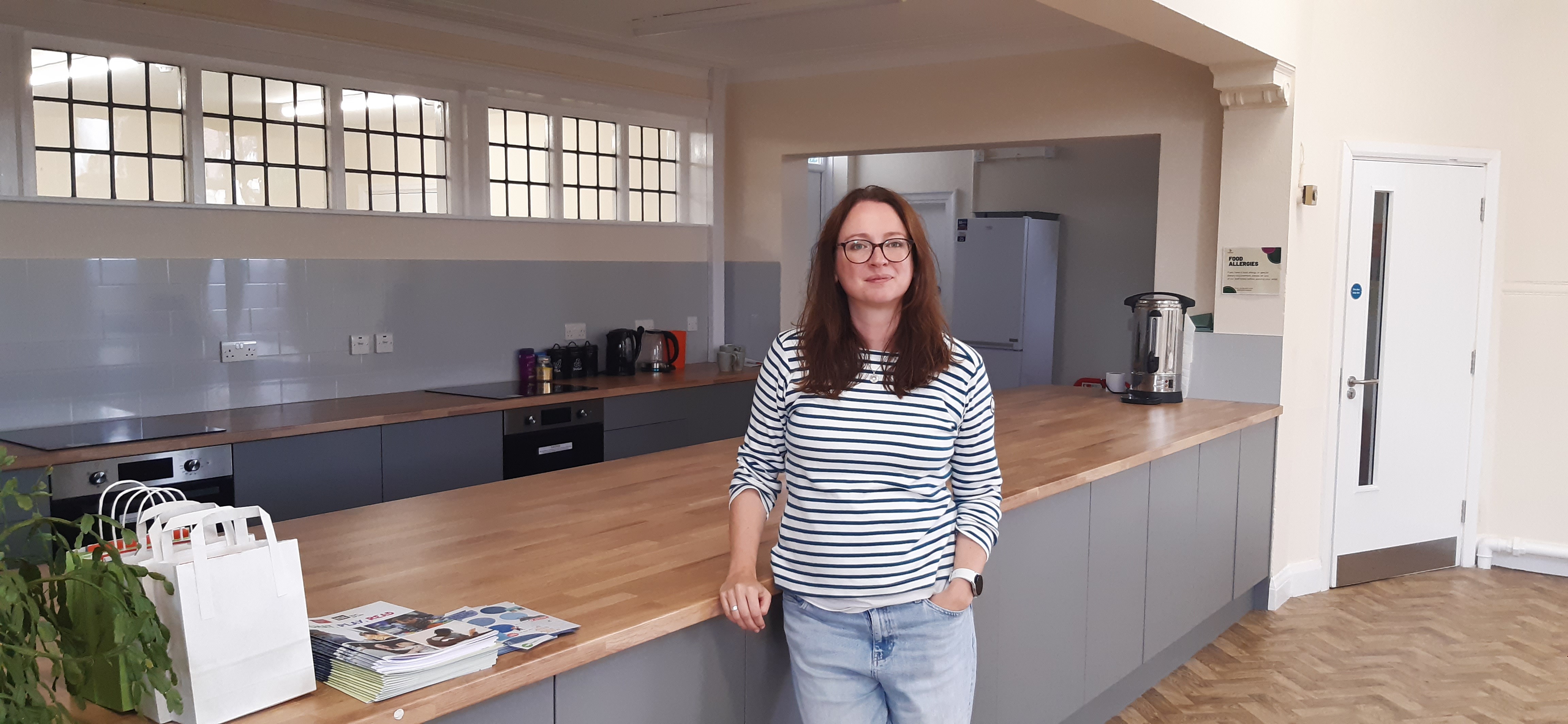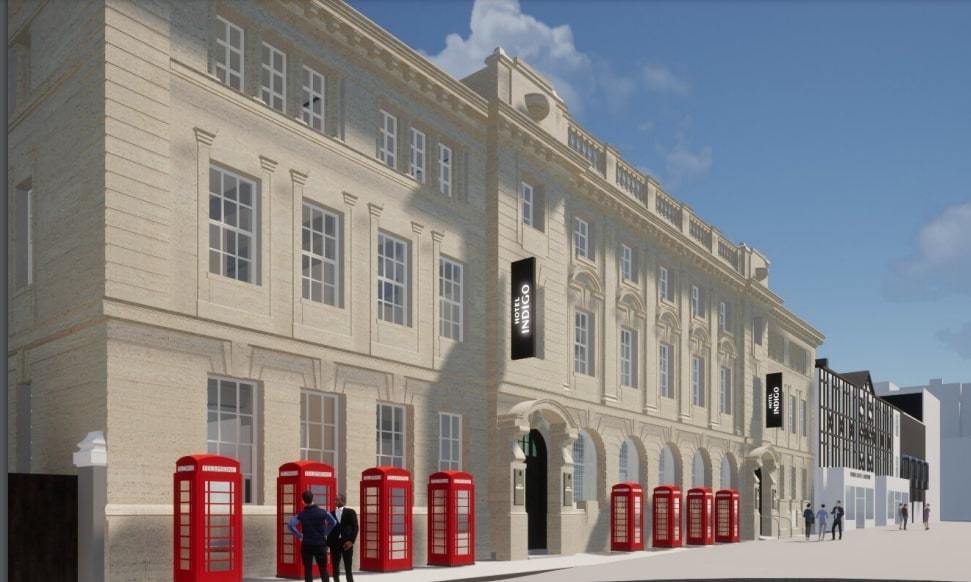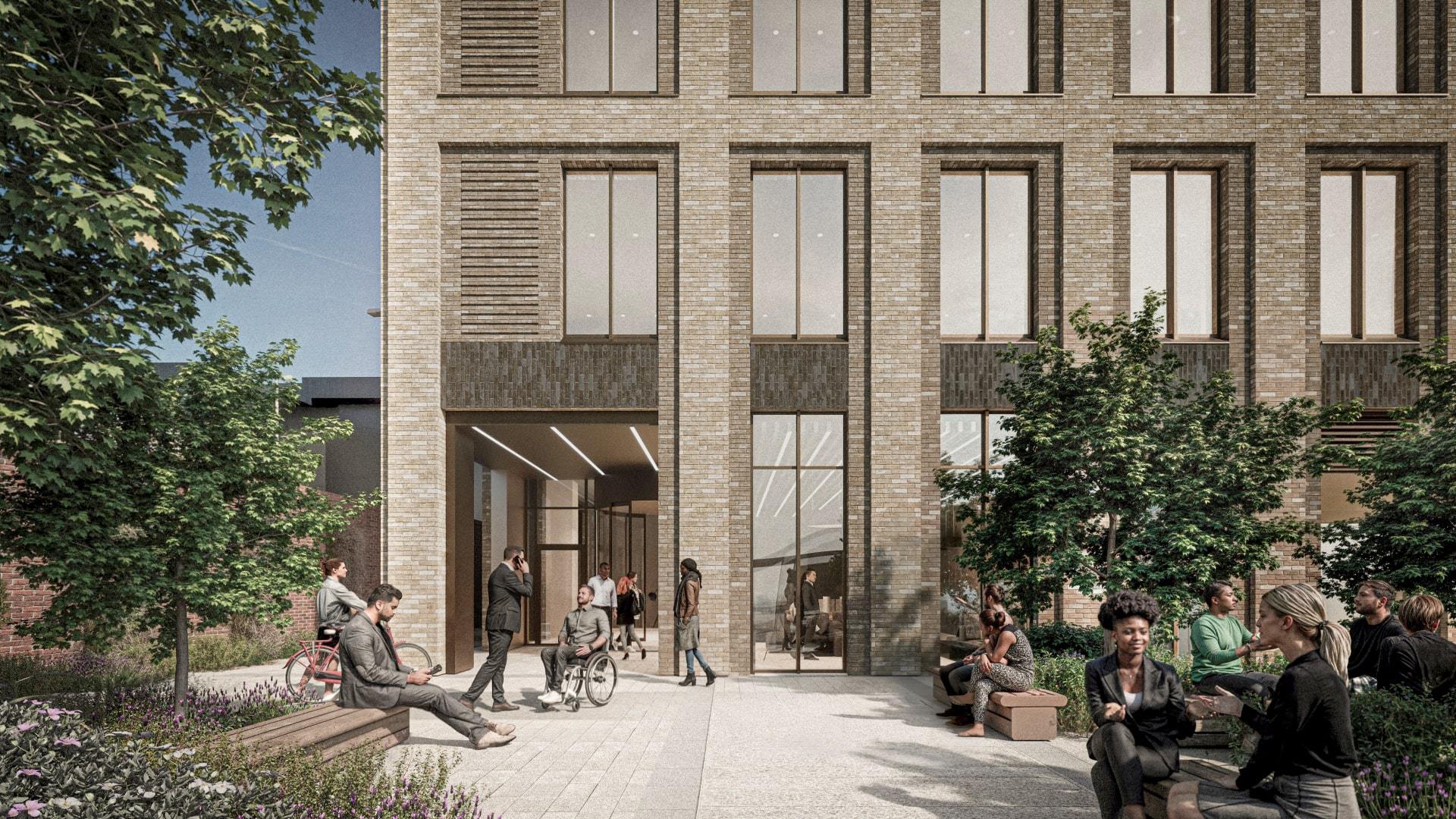Why did Blackpool riot?
Some, but not all, in Blackpool chose to respond to a wicked act in Southport with violence instead of support. But the search for answers as to why isn't straightforward
Not long after the dust had settled from a far-right rampage through the streets of Blackpool, with the echoes of “stop the boats” and “Oh, Tommy Robinson” still reverberating off the stone walls of the town hall, the question changed from “what?” to “why?”
Why, after such a wicked act was inflicted on young child dancers across the water in Southport, was the response one of violence and not support and solidarity?
Why were local white men moved to terrify women and children only minutes after chanting loudly about protecting them?
And why, in a town that has for its entire history relied on people travelling here to spend their money, have people become so against the idea of offering a welcoming place of safety to visitors from foreign lands?
They are questions that are easy to ask but harder to address.
The answers, it seems, are complicated.
There has been anti-immigration rhetoric from certain corners of the media, from politicians and from social media influencers.
There have been lies told online and offline, including that the suspect in Southport was a Muslim asylum seeker (he was actually born in Cardiff to Rwandan parents).
And there has been a noticeable cut to people’s quality of life in recent years, including in Blackpool, which has some of the poorest areas of the country.
Sociology professor Les Back, co-author of the books Racism And Society and Race, Politics And Social Change and researcher of topics including urban cultures, said he believes those taking to the streets may have felt a sense of betrayal and victimhood because their idea of what England should be is under threat from by “outsiders” arriving on their shores by small boat.
“That is something that is at the heart of England - this colonial and imperial sense of both entitlement and power,” he said.
That, Back said, was evidenced by the airing at demonstrations of football chants such as “England ‘til I die”, while some protesters were draped in St George’s Cross flags.
Roger Haywood, one of the Blackpool disorder’s ringleaders, was not involved in organising the protest that day and had been drinking in a resort bar - dressed in an England football shirt with “Dad 1” on the back - when he decided to join in, his sentencing hearing was told.
So how does someone go from having a drink on a sunny Saturday to snarling at police officers and attacking security guards trying to protect a branch of JD Sports inside the Houndshill Shopping Centre?
They may, Back suggested, have their subconscious feelings of melancholic nostalgia, which he believes are the result of hundreds of years of history and are often “fantastical” yearnings for a bygone time that never was, stoked and brought to the fore by politicians who “are drawing on that reservoir of feelings for their own political interests”.
“It’s legitimised by a sense of being a victim and of a deep wrong against people who gave their lives for this country,” he said.
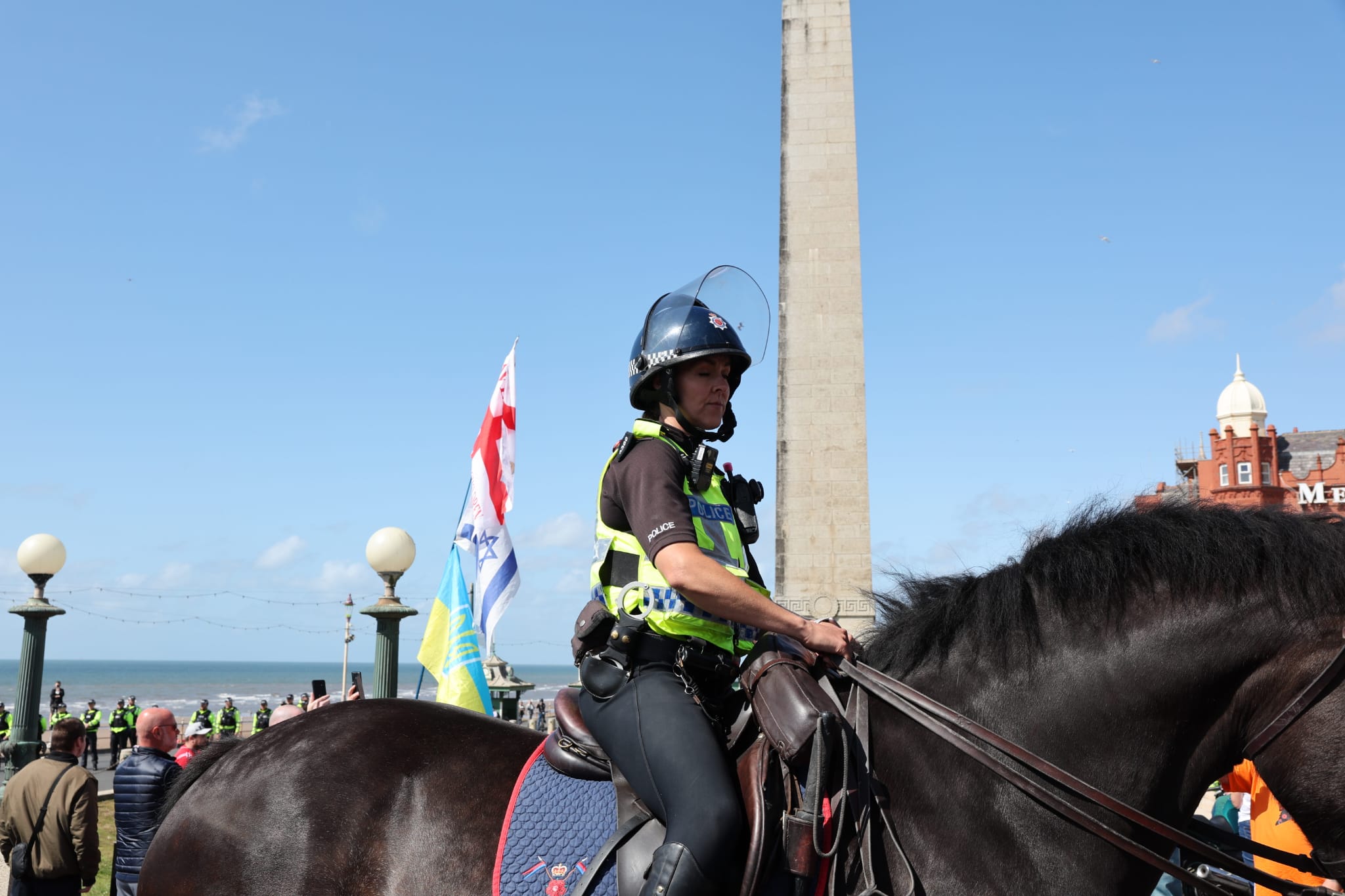
3 August in Blackpool. Credit: Michael Holmes/The Blackpool Lead
Those on the opposite side of the political spectrum, however, should be more open to having an honest debate about immigration rather than dismissing everyone with anti-immigration opinions as being on the far-right, he said.
He added: “There’s a fear of giving offence and taking offence. We have to be brave to both give and take offence and to be in that space of dialogue.
“There’s no other way than to have difficult conversations and to be able to both hear and also to speak.”
Labour’s Blackpool South MP Chris Webb won his seat at a byelection this year after Conservative Scott Benton, who once said the country had long been a “soft touch on immigration”, quit after being caught up in a lobbying scandal.
Webb said: “Many people here and across the country are disaffected after 14 years of Tory rule. Life has been hard. We heard their frustrations with the Brexit vote and we heard them again at the polling stations when they voted in July’s general election. It’s no coincidence that the leader of Reform was a leading voice in fanning the flames of division in the lead-up to the riots.
“While it’s easy to blame poor and deprived people for the disorder, it’s important to identify the people with influence and power who are targeting them with their racist rhetoric.
“Undocumented immigration is a real concern. The Conservatives lost control of our borders and Labour is working hard to take back control of them while tackling the illegal gangs who exploit desperate people in search of safety.
“Last week the Home Secretary announced new measures to strengthen border security, enforce immigration rules and increase returns. But immigration is being weaponised by the far-right to fit its racist agenda and used as a scapegoat for all the problems people in poverty face.
“It’s impossible to engage in meaningful conversation with racists or violent thugs. That’s for the police and the courts to deal with – as they have been doing efficiently since the riots.
“But it’s important to engage with those disaffected people the far right is targeting, to understand their problems and explain the work the government is doing to tackle them.
“It’s also important to highlight our humanitarian obligation to asylum seekers and explain how more efficient processing of asylum claims will allow more foreign nationals to contribute positively to society, just as immigrants have done in Britain for generations.”
According to analysis by the Financial Times, Blackpool, alongside Middlesbrough, Hartlepool, Hull, Manchester, Blackburn and Liverpool, which all had riots, are all in the top 10 most deprived areas of the country by local authority.
Rob McNeil, deputy director of the Migration Observatory at the University of Oxford, told the publication: “These are often communities that are already socio-economically deprived and have high unemployment, which can contribute to a sense that there is competition for scant resources?”
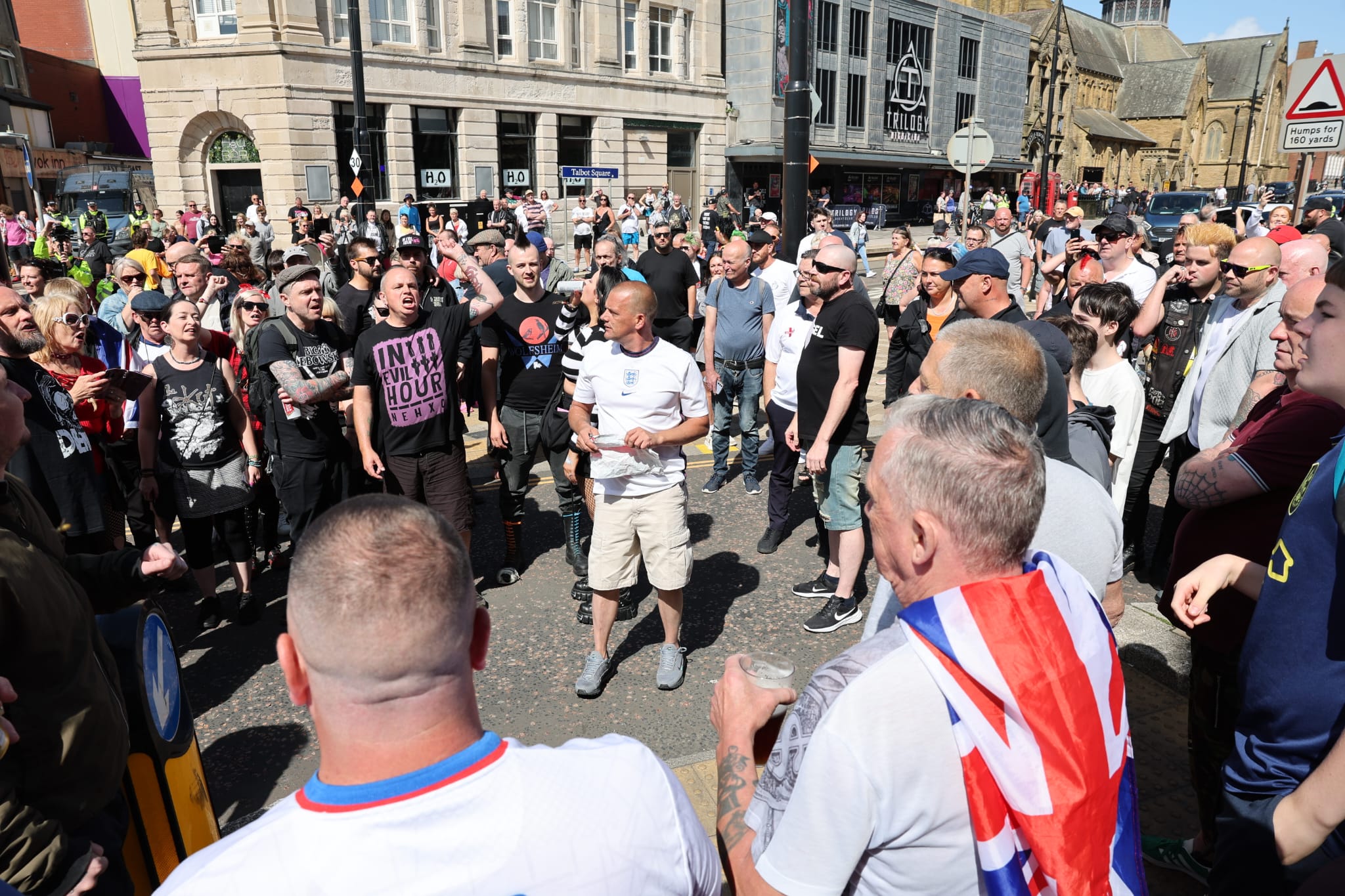
3 August in Blackpool. Credit: Michael Holmes/The Blackpool Lead
But is that the case in Blackpool, where jailed rioters include a man who makes his living pretending to be a statue in the town centre?
Prof Danny Dorling from the University of Oxford, who has spoken about the disparity between society’s richest and poorest, said: “If I was investigating this, I would look at all the riots that took place and try to work out if there was a pattern and who drove into each place and who posted the notices on social media first and so on.”
He added: “I find it hard to think these things were that spontaneous, having seen the geographical pattern, but someone should investigate this carefully.”
Alun Francis, chairman of the Social Mobility Commission and principal and CEO at Blackpool and The Fylde College, said he saw the Tottenham riot in 1985, lived in Salford during riots seven years later and led a school desegregation scheme in Oldham after unrest there in 2001.
He wrote in the Financial Times: “We should not oversimplify but there seems to have been a shift over this period from urban unrest linked to race and equal equality, mainly in big cities, to social friction linked to immigration in towns and seaside resorts.”
In the 2021 census, the latest to be carried out, 2.6% of Blackpool residents said they were “Asian, Asian British or Asian Welsh, up from 1.6% a decade earlier but much lower than the national figure of 9.3%, up from 7.5% in 2011.
Writing about “the clustering of disadvantage in the poorest places” and “the white British poor”, though he makes it clear “this group is not the same as the white ‘working class’”, Francis said: “Anyone who has lived or worked in poor communities knows they are complex.”
He added: “There is no single policy or intervention to turn this problem around. We argue that the starting point for improving opportunities must be a growing, innovative economy, addressing regional disparities. But this must connect with wider place-based approaches, focused on communities and families, and a genuine willingness to understand what holds the white poor back.”
In the hours after the anti-immigration rally in Blackpool on Saturday August 3 spilled over into violence, and as an anti-fascist punk lay in hospital with a broken skull and a bleed on his brain, after being attacked in St John’s Square, Lancashire Police’s Asst Ch Con Phil Davies said there had been “mindless thuggery” from people believed to “be from outside of the county, intent on causing issues in our communities”.
But those sent to prison, after having their prosecutions fast-tracked in apparent warnings to others, so far have been from the town and were not outsiders.
Jailed Haywood, 41, of Yew Tree Road on the Grange Park estate, who has previous convictions for violence, stalking and being drunk and disorderly, was described as being “clearly in the lead” as he led a mob on a violent march through the resort.
Judge Robert Altham told Haywood as he jailed him for 30 months that there was “no political, no ideological basis for taking to the streets”, adding that the “so-called demonstrations were merely pretext for violence and expressions of hate”.
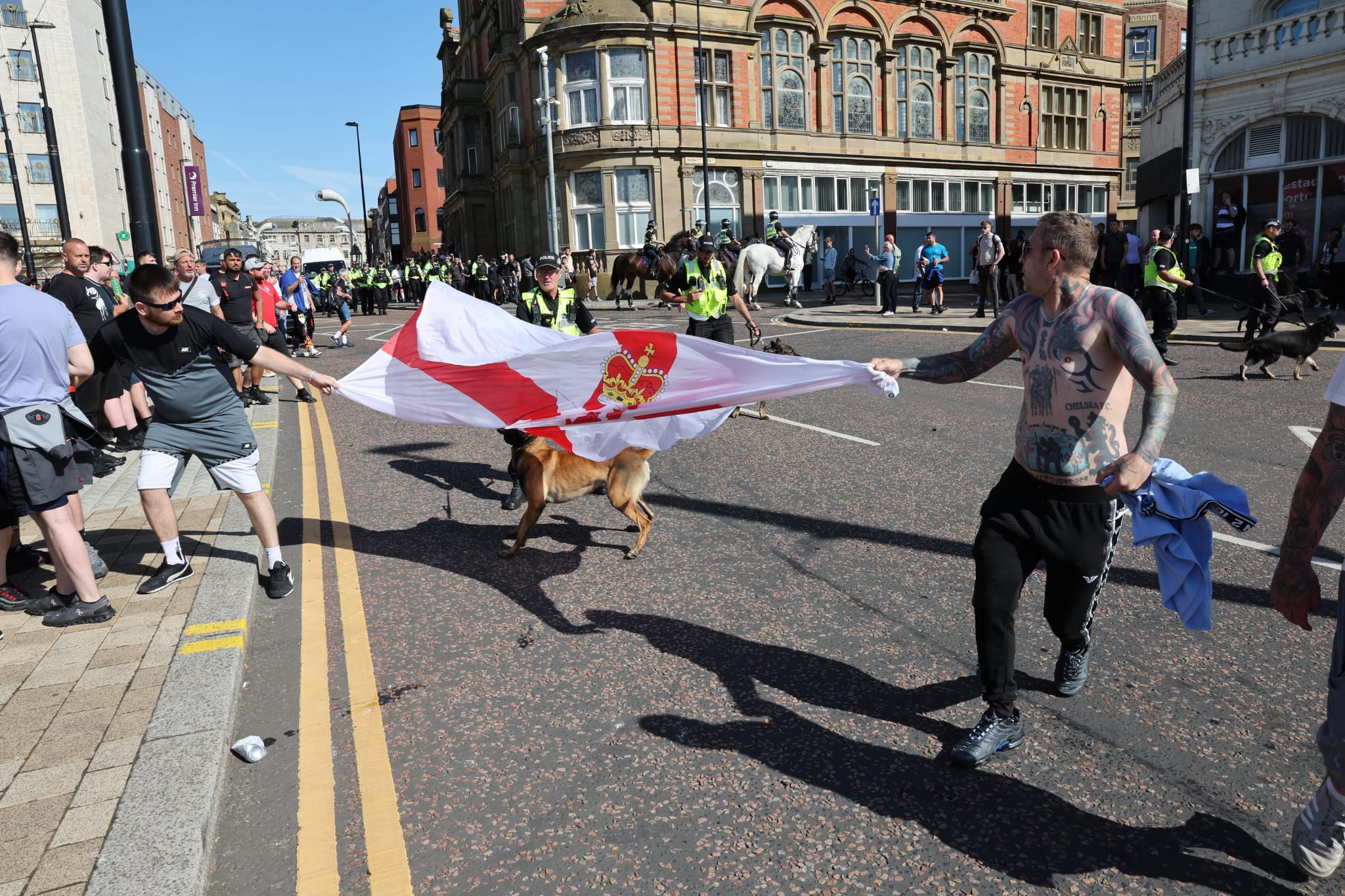
3 August in Blackpool. Credit: Michael Holmes/The Blackpool Lead
Zoe Billingham, director of the Institute for Public Policy Research, told The Independent “there is no justification for the riots or violence” that swept the country.
She said: “There is a danger that people can use an economic justification for these riots and that would be incorrect.
“It would be remiss for us not to acknowledge that there is a certain level of deprivation in some of the areas where violence has taken place.
“Deprivation, high levels of inequality and significant budget cuts from austerity can be used as descriptors for some of these places. However, the economic status of an area is not a justification for violence, which was whipped up online and does not represent the communities it has impacted.”
Dorling, the Oxford professor, said “one key question” is why disorder was not widespread in the south of England.
“Was nothing posted on social media inciting people in the south? If so, why?” he asked.
“In short, what was the pattern of incitement to riot and what was the seed of the incitement - the first acts?”
Nineteen of the 20 areas with England’s most deprived neighbourhoods are in the north, a government report, English Indices of Deprivation, found in 2019, the latest of its kind.
Outside of Jaywick and the Anfield area of Liverpool, which also saw a riot, Blackpool was found to have eight out of the 10 poorest wards in the country.
Andy McDonald’s Labour MP for Middlesbrough, which has a child poverty rate of 41%, said “rampant inequality” opened the door to “terrible behaviours and abuse”.
He told PoliticsHome: “And this was such an opportunity, an excuse, for those who know about just how weakened we’ve become over these years to really indulge themselves.”
Prof Gerry Stoker, an expert on urban politics, said linking poverty to the riots is fraught with risk.
He said “such a small number of places” saw disorder out of “50-plus cities and nearly 400 medium-sized towns” and there could be a “struggle to identify why some places saw riots and others did not”.
“Clearly, low income or deprivation could be a factor but, given almost all cities and towns that did not see riots also have at least pockets of deprivation, it cannot be judged as a deciding factor,” he said.
“Studying riots and what drives them is hard, given their nature. So we are left to speculate what else might be a present factor to explain them - right wing cells, youth versus police antagonism.
“(I’m) not really sure but multiple factors must have been at play, perhaps even chance.”
However elusive a conclusive answer is, there’s no doubting that the analysis is being done globally.
Writing in The New York Times International Edition, Hibaq Farah, a former Guardian reporter turned opinion writer, suggested the recently ousted Tory government must at least take a share of the blame.
She wrote: “The animosity underpinning the riots - hatred of Muslims and migrants alike - have long found expression in Britain’s political culture, not least under the previous Conservative government whose cornerstone commitment was to “stop the boats” on which migrants made their way to British shores.
“Far-right extremists, emboldened by that government’s turn to migrant-bashing, have been waiting for the perfect chance to take to the streets. Crucially, they have found a home online, where platforms - poorly regulated and barely moderated - allow the spread of hate-filled disinformation, whipping up a frenzy.
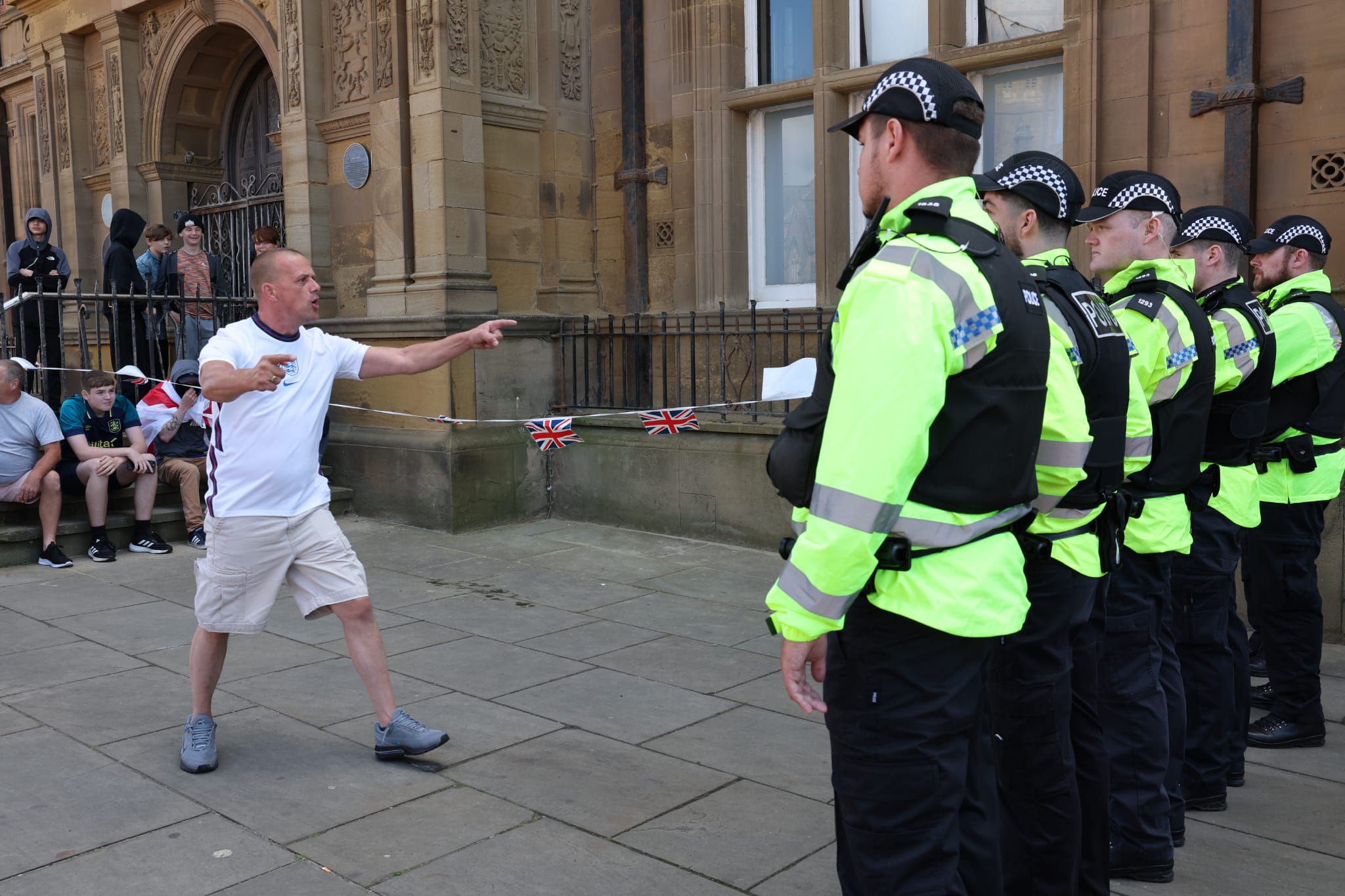
3 August in Blackpool. Credit: Michael Holmes/The Blackpool Lead
“These have been disturbing days. But the chaos has been coming.”
Some of the racism on display in Blackpool on August 3, and at a follow-up protest several days later, where demonstrators were outnumbered by observers and bona fide and independent journalists, was casual and overt.
On the Saturday, in an apparent act of confession, one man tore from a woman’s hands a sign saying: “Thugs and racists are not welcome in Blackpool.”
And a dog walker openly expressed her shock at the behaviour of some of the protesters - before saying she was tired of asylum seekers being put up in hotels while “our own” sleep rough.
The following Wednesday, opposite an immigration law office in Lytham Road, South Shore, shortly before another anti-immigration protest was due to start, a pensioner sidled up to two reporters.
Taking a drink from a granny trolley, she at first blamed the earlier trouble on young people.
After a swig of her beverage, she then said there was an empty house on her street nearby - and threatened to burn it down if any “Muslims move in”.
Blackpool South MP Webb, who spoke to some of the protesters later that night, said: “I believe a Labour government can and will improve people's lives in Blackpool and beyond. Doing so – while continuing to engage in constructive conversation with constituents who have felt left behind by mainstream politics, and sharing positive stories of immigration – is the way to stop the seeds of division sown by the far right from taking firm root.
“Overwhelmingly what I have seen since the unrest in Blackpool is the community pulling together and becoming more united. Blackpool has a long tradition of being open and welcoming to all and it will continue to be so.”
There's lots of ways you can support our work as The Blackpool Lead, from a one-off donation, to a monthly payment through to shopping for The Lead branded merchandise too. It all helps support our independent, in-depth, journalism.
The Blackpool Lead is now on Substack.
Become a Member, and get our most groundbreaking content first. Become a Founder, and join the newsroom’s internal conversation - meet the writers, the editors and more.


